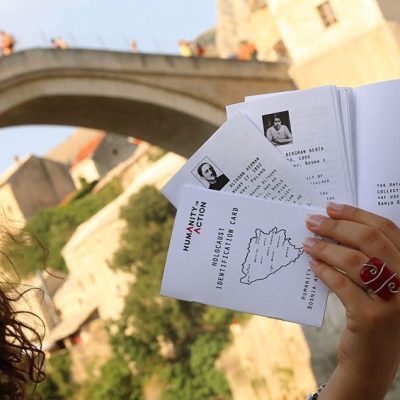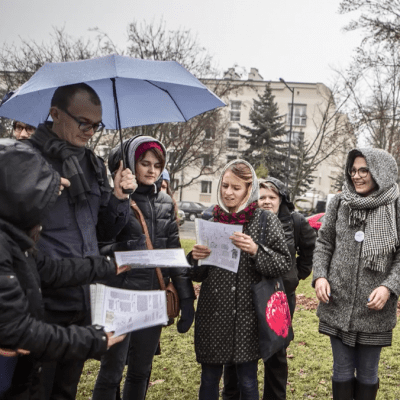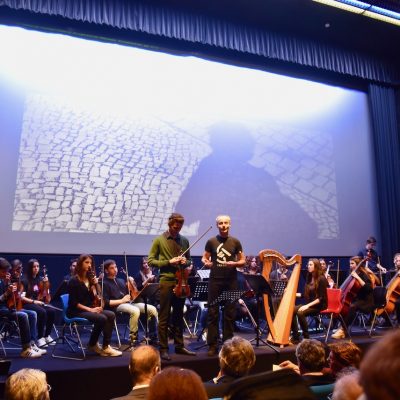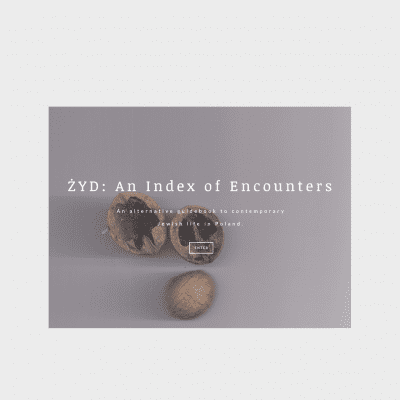Article
The Action Project Holocaust Identification Cards aims to emphasize the importance of remembrance, through bringing awareness to the stories of five victims from Mostar. The Holocaust Identification Cards that are given at the entrance of the United States Holocaust Memorial Museum, served as a stimulus for this project.
These documents, which resemble a passport, preserve the story of a real person who lived during the Holocaust.
This perspective, which focuses on an individual, introduces feelings suffering and loss to the ID card readers. When introduced to even basic personal information, participants realize how nets of affected persons (family and friends) spread around each deceased victim.
The idea for this project arose from the fact that none of these 138 victims stories were recorded and included in the Holocaust Encyclopedia.
Inspired by such a simple and highly effective document, Senior Fellow Inga Kotlo browsed the USHMM Holocaust Encyclopedia in search of stories from victims originating from Western Balkans. When she realized that there were only a few stories available, she decided to conduct research in her hometown of Mostar with the aim to gather information and put it in a form of an ID Card. The cards could serve both as a contribution to USHMM’s Holocaust Encyclopedia, and as tribute to the citizens of Mostar who lost their lives during World War II.
In other words, the concept of singling out the importance of a single victim significantly enhances the reader’s ability to depict and relate to the universal concept of loss.
During the Holocaust, more than 1,500 Jews fleeing from the southern parts of Bosnia and Herzegovina found shelter in the city of Mostar. Unfortunately, despite the citizens’ tremendous efforts, 138 Jews were taken away and killed in the concentration camps of the Independent State of Croatia. The idea for this project arose from the fact that none of these 138 victims stories were recorded and included in the Holocaust Encyclopedia. Therefore, five stories were saved from oblivion in order to raise awareness and emphasize the importance of remembrance and learning from the past.
After having invested time to learning more about Holocaust Identification Cards, as well as to browsing the already existing USHMM database, which assured her that there are only a few (seven) stories about victims from Bosnia and Herzegovina, Inga conducted a research in Mostar to inspect whether this kind of project would be achievable there. Upon gathering enough material to document five stories, she started the process of selecting, editing and translating the text (cards are available in Bosnian and English language), as well as designing and, finally, printing the Holocaust Identification Cards. Currently, the project is in its final phase – promotion – which will hopefully result in a number of partnerships with individuals/organizations/institutions interested in the project.






